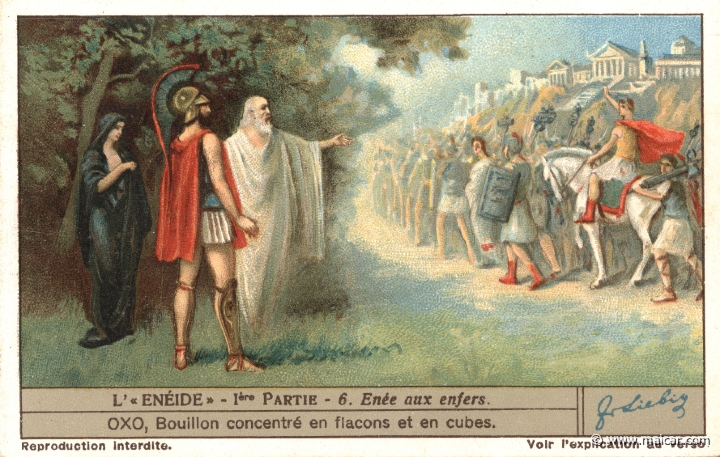Virgil’s vision of Roman greatness put into the mouth of Anchises, the dead father of Aeneas whom Aeneas travels to find in the Underworld in this book – the turning point of the poem.
Anchises points out the future heroes of Rome yet to be born, a long catalogue that is patriotic and visionary but also cautionary and sad. It culminates in this grand passage which, although outwardly imperialistic, also warns of the great responsibilities and dangers that go with power.
Jane Mason
Excudent alii spirantia mollius aera,
credo equidem, vivos ducent de marmore voltus,
orabunt causas melius, caelique meatus
describent radio, et surgentia sidera dicent: 850
tu regere imperio populos, Romane, memento;
hae tibi erunt artes; pacisque imponere morem,
parcere subiectis, et debellare superbos.”
Others will forge breathing bronzes more smoothly
(I believe it at any rate), and draw forth living features from marble.
They will plead law-suits better and trace the movements
Of the sky with a rod and describe the rising stars.
You, O Roman, govern the nations with your power- remember this!
These will be your arts – to impose the ways of peace,
To show mercy to the conquered and to subdue the proud.

The above text is provided by the Perseus Digital Library and the translation is by Jane Mason.

It’s important to remember that Anchises is talking here not to Aeneas but over Aeneas’ head (so to speak) to a hypothetical future Roman. Aeneas himself, the hero of the poem, never mentions Rome. Aeneas hopes all the time to re-establish Troy in Italy — a hope which Jupiter destroys when, in book 12, he concedes to Juno that Trojan identity will disappear.
[…] pacisque imponere morem, / parcere subiectis, et debellare superbos” — translated by Jane Mason here as “You, O Roman, govern the nations with your power — remember this! / These will be your arts […]